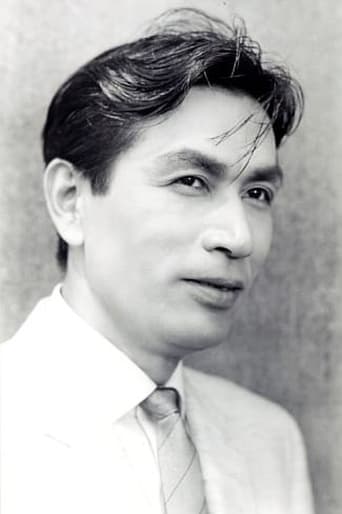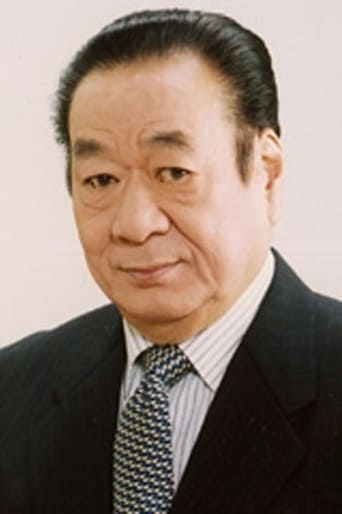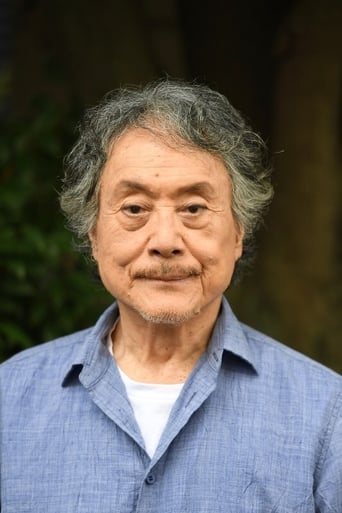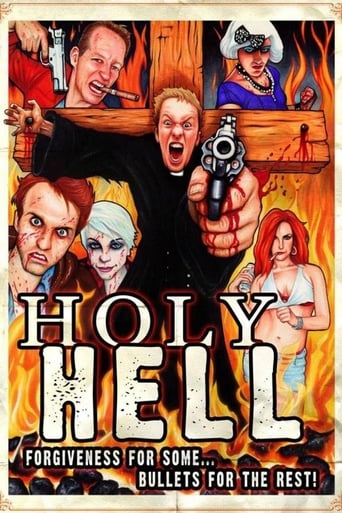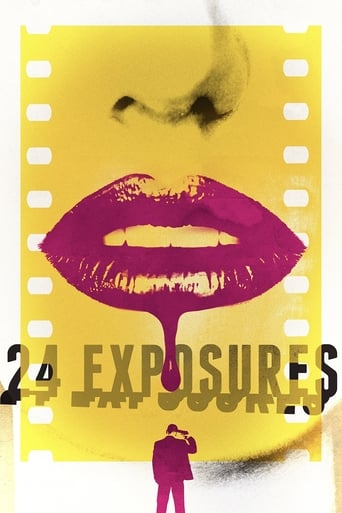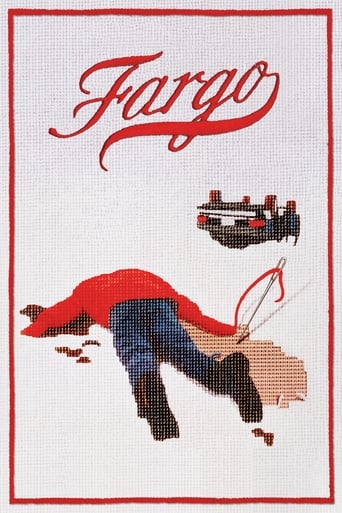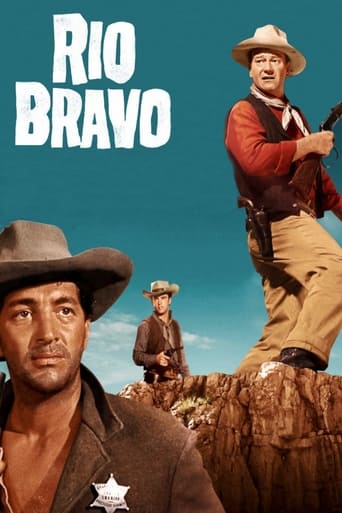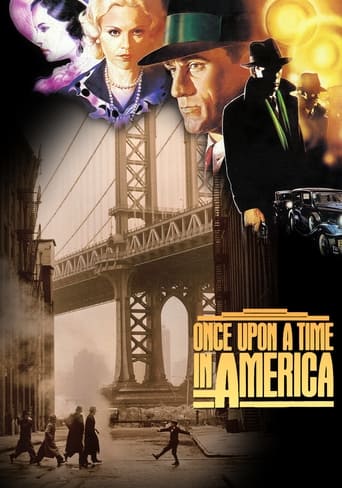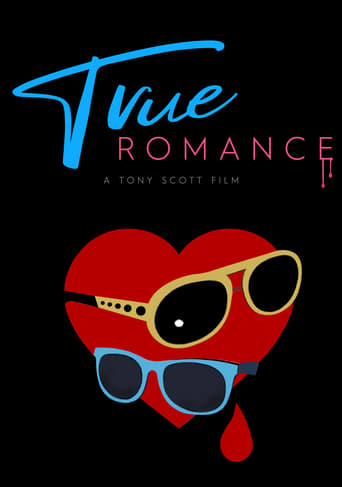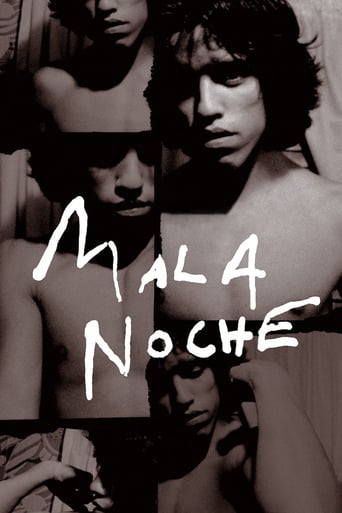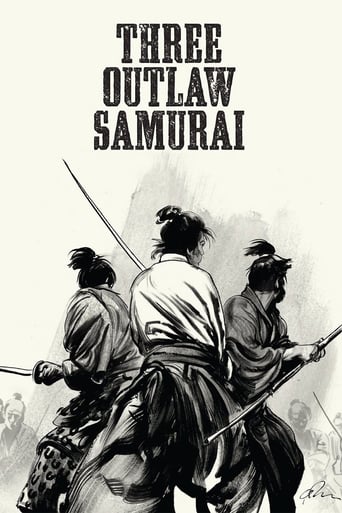
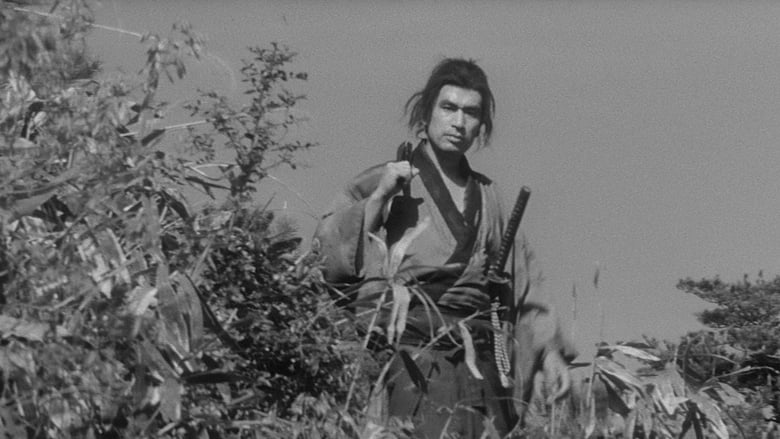
Three Outlaw Samurai (1964)
Shiba, a wandering ronin, encounters a band of peasants who have kidnapped the daughter of their dictatorial magistrate, in hopes of coercing from him a reduction in taxes. Shiba takes up their fight, joined by two renegades from the magistrate's guard, Sakura and Kikyo. The three outlaws find themselves in a battle to the death.
Watch Trailer
Cast


Similar titles
Reviews
Powerful
A terrific literary drama and character piece that shows how the process of creating art can be seen differently by those doing it and those looking at it from the outside.
This movie tries so hard to be funny, yet it falls flat every time. Just another example of recycled ideas repackaged with women in an attempt to appeal to a certain audience.
The movie turns out to be a little better than the average. Starting from a romantic formula often seen in the cinema, it ends in the most predictable (and somewhat bland) way.
Three Outlaw Samurai is massively successful at being a tough, no-punches-pulled story of a corrupt Magistrate (as well as samurai, whether former or not who can say, he barely acts like one) who reveals his true colors when a few peasants kidnap his daughter and hold her for ransom. At first, when we're introduced to these peasants (who barely have enough food for porridge) by way of the wandering, rogue samurai Sakon Shiba (sort of a 2nd tier Toshiro Mifune as by Tetsurô Tamba, but this is still to say he's superior likely to about a dozen other leading men from the time), it seems like the peasants may be the "bad" guys, though Shiba actually sides with them and doesn't mind - on the contrary encourages, almost out of a curious sense of 'lets see where this goes' lackadaisical attitude - for the peasants to continue. There are also two other samurai at different positions in this village, Sakura and Kikyo, who have varying personalities and attitudes to the magistrate (the latter is even more cynical than Shiba, Sakura a little more of a 'I might try to do good... maybe, at least I have more of a heart or conscience' type), and the first act deals with this hostage stand-off.I was entertained by this first part, and felt like I was settling in reasonably well into the world of this village where it seemed like a stand-off thriller involving samurai and peasants would take place.... and then the turning point happens where the Magistrate tries to give one of the peasants a taste of his own medicine (his daughter now under capture, plus a rape is more than implied), and this sort of trade-off of the two sides goes very poorly. But when Shiba tries to do the honorable thing - roving and Yojimbo-ish as he may be, he's still got a samurai's code of right and wrong - and take the brunt of the punishment, this also goes quite badly as the Magistrate turns out to be the villain of the story.While Three Outlaw Samurai may draw in viewers based on the promise of a lot of action and thrills and blood (albeit in black and white, which has its own electrical charge as far as seeing what effect happens, and always these fights are scored without music to heighten the tension and realism), it's actually a story of politics, both in how the Magistrate has no compunction about being corrupt but, hey, let's make sure everything's set and proper for the (superior to him) Lord's arrival in a few days, while not giving a damn about anyone or anything, least of all his samurai code. It's here that Gosha is able, on his first outing as director (man what a debut!), to get a lot of substance out of what is a slim volume of a movie at 93 minutes. This is a samurai movie made by people who love samurai movies for samurai movie fans, if that makes sense; it's hard and cold and grisly for a lot of the time, and yet the hopelessness, the feeling that any one of our main samurai could die if they're not on the total alert (the Magistrate has his hired killers like out of, to be sure, an old western with the desperadoes coming after the good gunslingers), adds another level to things.There may be a couple of nitpicks to have with a couple of the supporting players - the women in the film, more-so Oine than Aya but kind of both - are developed only up to a point, and Aya's character arc, while there, is kind of just in the backdrop (maybe a longer running time could've given her more to do, I don't know, she's an okay actress). Some of this may be a flaw with the writing too, or like that moment near the climax when (speaking of Star Wars again) the Han Solo-ish 'I'm leaving, no, wait, I'm going back to my friends' moment happens, which isn't unexpected, but Oine's reaction is really over the top. It wouldn't be so noticeable if everything else wasn't pitched at such a degree of realistic drama; it is theatrical, practically all of the performances, but I was struck by how Gosha made the suspense so moment-to-moment and beat-to-beat so that you never question the logic of how a characters gets out of something: it's all about who can possibly get the sword out faster and do the better/smarter move.I loved the action in this film, from how it's shot to how the actors play off of one another, and there is character to it - how Shiba fights is different than Sakura, so while they have strong technique they are distinct too in how the characters approach fighting off the other swinging-swordsmen - and I loved these actors in these main roles. At times the tone of Three Outlaw Samurai is bleak and unsettling, but that is what makes it... sorry for the lack of a better phrase, but it's bad-ass. It's simply that: it all builds up to a ferocious climax where it's unpredictable how it'll turn out - I wasn't sure who might get away from the couple of dozen swordsmen out on the three's asses - and yet the substance of the story drew me in too, how these peasants react (or don't) to Shiba and his (anti)heroic movements. There's revenge, there's loyalty, there's death-defying strokes of heroism (maybe against better judgment) and all shot in shockingly good black and white photography that always has a purpose in every movement and cut.PS: Some of the sword-fighting is, according to director Rian Johnson, a big inspiration for the upcoming Star Wars film The Last Jedi. Whether it's the Hidden Fortress or this, it's great to see Japanese cinema in the blood of sci-fi fantasy.
A wandering ronin stumbles upon a mill building after finding a woman's hair pin. Inside three peasants have kidnapped the magistrate's daughter in order to seek justice on behalf of all the peasants. The cynical samurai schools the peasants on how to handle a kidnapping. The humorous but portentous beginning sets up the characters and action of the film.It is an entertaining chambara film, but there is lack of depth in terms of character study that set apart the best films. Nevertheless, it is a quality, skilled debut film by Hideo Gosha.During some of the sequences, the camera makes a well timed dutch tilt to present the action in the film. The action and suspense in the film is well choreographed as the upper hand changes during the first act. The action is restrained and purposeful which makes the fights much more compelling.SPOILERSIn this film we see the loyalty of two of the samurai to the peasants as a virtue despite all the hesitations on their part. Are they only defending the peasants because there are no better options for independent samurai? The third samurai works for the ruthless magistrate. He switches allegiances out of necessity when the magistrate places a price on his head.Part of the film looks at class warfare as the magistrate hoards all the goods and the peasants starve. The film does not fall into romantic view of the struggle which is what sets it apart from other films. In the end, the peasants are too afraid to take action and risk their lives in the name of justice. They are unwilling to present their demands to the Lord of the magistrate when he visits. When people cannot take their own fate into their own hands, there is not much that can be done for them. The daughter of the magistrate develops empathy for the plight of the peasants, but also remains deeply loyal to her father in their family bond. The magistrate is the only two dimensional character. He is ruthless and ready to betray anyone in his way. In some regards, the number of betrayals by the magistrate in the film detract from the possibilities of greater character development as his own character.I loved the dust blown by in several sequences that make the locales of combat come across as much more desolate and rugged.Nevertheless, this is a great film for lovers of samurai films who wish to delve deeper than the typical popular films.
Hideo Gosha's first in a series of great movies leading up to his double triumph of Hitokiri and Goyokin in 1969, is a simple but engaging chambara with a sociopolitical angle that has more in common with Kurosawa's work than the stylistic flourishes and visual grammar the director developed later in his career.Very similar to Seven Samurai in terms of style and themes, this is another take on the familiar story of cynical samurais helping out poor peasants in their fight against the oppression of the rich and powerful. Three lowly peasants kidnap a daimyo's daughter and demand a tax reform that will ease the economic burden for all the peasants in the nearby villages. It's all well plotted and interesting for the duration with great performances all around and near superb swordplay action. Gosha's two Samurai Wolf films as well as Sword of the Beast would make ideal companion pieces as an entry point to the director's output. Fans of Kurosawa's jidaigeki work are likely to appreciate it just as well.
Excellent black and white cinematography, solid acting, well done action and a reasonably good story make this a satisfying film. The story of wandering samurai coming to the aid of impoverished farmers is not new and the characters are stock but this isn't a real problem if you are looking for something to sit back and enjoy easily. The direction is very assured and it's remarkable that this is a first directorial effort. The actors are appealing and the film never gets bogged down in long exposition or beauty shots. The comparison to a spaghetti western is apt.The film seems like it was intended to start a series based on the three characters. Too bad that didn't happen.


